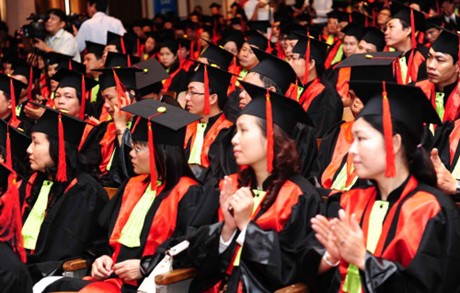Resolution on comprehensive education reform
VGP – Party leader Nguyen Phu Trong has signed the Resolution on the basic and comprehensive reform of education and training which was brought to discussion during the 8th Plenary session of the 11th Party Central Committee last September.
|
|
|
Illustration photo |
Reform here ranges from the renewal of stances, targets, curricula, testing methods, mechanisms and policies, State management styles, administration skills to the engagement of the whole society.
Education reform is a must for Viet Nam to gain a competitive advantage in the quest for narrowing the development gap with neighboring countries.
With the new progressive approach, students will learn skills applicable to real life including teamwork, independent study and presentation, and exams will test their ability to apply knowledge rather than memorized facts, said Minister of Education and Training Pham Vu Luan.
He said that the current textbooks were too academic and theoretical, so textbook changes would be a key part of the reform.
Moreover, primary and secondary school students would gain practical knowledge suitable to their physical and mental development.
In high school, in addition to a few compulsory subjects, students would be able to choose what they wanted to learn depending on their hobbies, ability or career orientation./.
By Huong Giang


